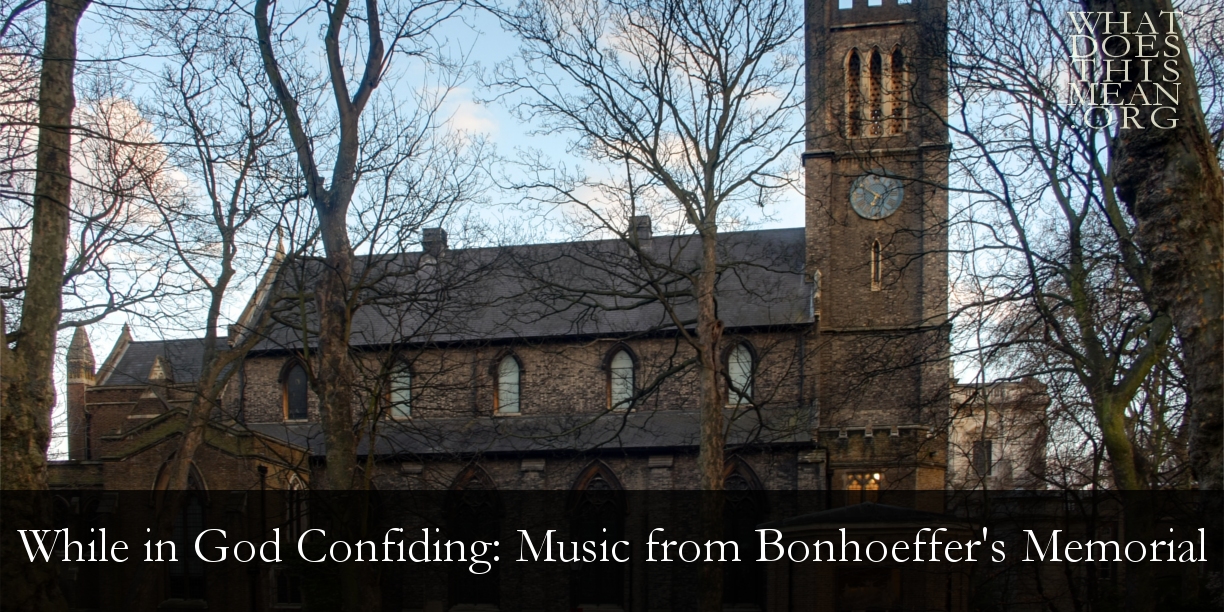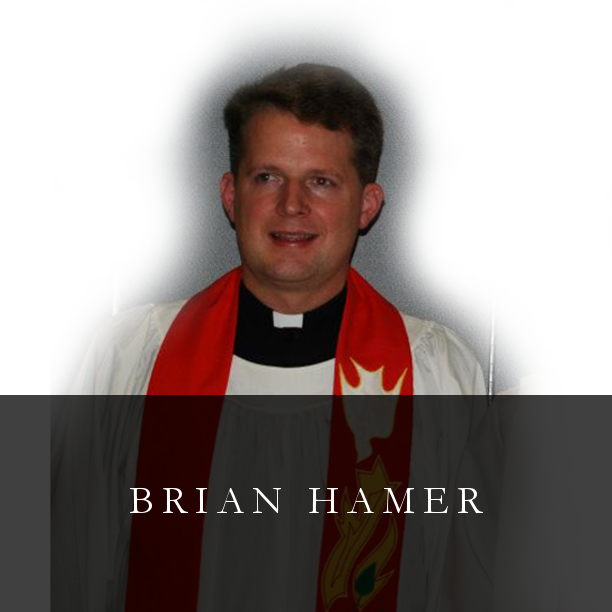the everlasting kingdom of peace.
| Oh, may Thy soldiers, faithful, true, and bold, Fight as the saints who nobly fought of old And win with them the victor’s crown of gold. Alleluia! Alleluia! And when the strife is fierce, the warfare long, Steals on the ear the distant triumph song, And hearts are brave again, and arms are strong. Alleluia! Alleluia! (The Lutheran Hymnal [TLH] 463.3, 5) |
| For martyrs who with rapture-kindled eye Saw the bright crown descending from the sky And, dying, grasped it, Thee we glorify. Alleluia! Alleluia! |
The first of these fitting hymns is probably better known to the reader as “If Thou But Suffer God to Guide Thee”. Both text and tune are by George Neumark (1621-1681), a true “man for all seasons”. At various points in his life, he served as a musician, hymn writer, poet, librarian, and royal archivist. When he was only 19 years young, following a period of anxiety and uncertainty, he was relieved to receive employment as a tutor in the home of a certain Stephan Henning in the city of Kiel. During the year of his death, Neumark recalled, “This good fortune, which came so suddenly and, as it were, from heaven, gladdened my heart so that I, on the first day, to the glory of my God, composed [this] well-known hymn . . . for I had ample reason to thank God heartily for this unexpected grace, both then and to the end.” This wonderful tandem of text and tune was first published with the heading, “A Hymn of Consolation. That God will care for, and preserve, His own in His own time, after the saying, ‘Cast thy burden upon the Lord, and He shall sustain Thee’” (Ps. 55:22). W. G. Polack says, “[This hymn] is not only Neumark’s best hymn, but one of the finest hymns of trust in all our hymnody” (Handbook to the Lutheran Hymnal, pp. 361-362).
Sabine did not mention which version of “If Thou But Suffer God to Guide Thee” was sung. It is likely that the choir master selected music from J. S. Bach’s Cantata 93. The seven movements of this cantata coordinate with the seven stanzas included in many hymnals today. It was even written for the Fifth Sunday after Trinity, which usually occurs in early July, so the music might literally have been in the choral folio. The following duet from this cantata, the central of its seven sections, would have been appropriate for the occasion. The sense of joy vs. sadness is evident in the contrasting musical figures sung by the two soloists. Listen carefully for the chorale melody in the upper strings, which enters and exits periodically throughout this movement:
| God knows full well when times of gladness Shall be the needful thing for thee. When He has tried thy soul with sadness And from all guile has found thee free, He comes to thee all unaware And makes thee own His loving care. (TLH 518.4) |
| If thou but suffer God to guide thee And hope in Him thro' all thy ways, He'll give thee strength, whate'er betide thee, And bear thee thro' the evil days. Who trusts in God's unchanging love Builds on the Rock that naught can move. Be patient and await His leisure In cheerful hope, with heart content To take whate'er thy Father's pleasure And His discerning love hath sent, Nor doubt our inmost wants are known To Him who chose us for His own. Sing, pray, and keep His ways unswerving, Perform thy duties faithfully, And trust His Word, though undeserving, Thou yet shalt find it true for thee. God never yet forsook at need The soul that trusted Him indeed. (TLH 518.1, 3, 7) |
| 1. "Come, follow Me," the Savior spake, "All in My way abiding; Deny yourselves, the world forsake, Obey My call and guiding. O bear the cross, whate'er betide, Take my example for your guide. 2. "I am the Light, I light the way, A godly life displaying; I bid you walk as in the day; I keep your feet from straying. I am the way, and well I show How you must sojourn here below. 3. "My heart abounds in lowliness, My soul with love is glowing; And gracious words My lips express, With meekness overflowing. My heart, My mind, My strength, My all, To God I yield, on Him I call. 4. "I teach you how to shun and flee What harms your soul's salvation, Your heart from ev'ry guile to free, From sin and its temptation. I am the refuge of the soul And lead you to your heav'nly goal." |
| 5. Then let us follow Christ, our Lord, And take the cross appointed And, firmly clinging to His Word, In suff'ring be undaunted. For those who bear the battle's strain The crown of heav'nly life obtain. (TLH 421) |
| We believe in the communion of saints, the forgiveness of sins, the resurrection of the body and the life everlasting. We give thanks to God for the life, the suffering, the witness of our brother whose friends we were privileged to be. We pray God to lead us, too, through his discipleship form this world into His heavenly kingdom; to fulfill in us that other word with which Dietrich concluded his obituary of [the Lutheran theologian Adolf von] Harnack: “non potest non laetari qui sperat in Dominum” – “While in God confiding I cannot but rejoice.” (Cited in Metaxas, pp. 541-542) |



 RSS Feed
RSS Feed
